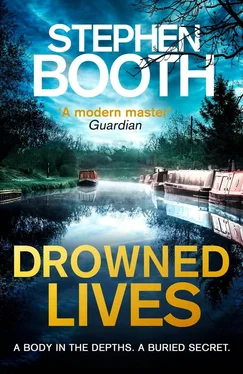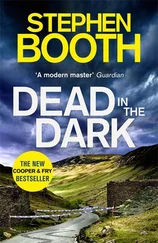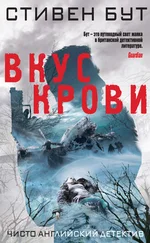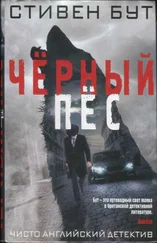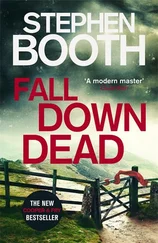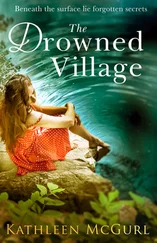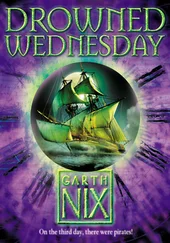I considered the situation I’d got into. Rachel and Laura were both helping me. Laura knew about Rachel, but Rachel knew nothing of Laura. It was a position fraught with potential conflict and embarrassment. But I’d reached a stage where I didn’t care about such consequences. The book was everything. It had become part of the fabric of my life now. I would have sacrificed all my relationships to it — even the house in Stowe Pool Lane, if it came to that. Which it might.
‘I’ve got somebody handling that end of things,’ I said.
‘Oh?’ Rachel looked surprised. ‘Anyone I know?’
‘No. A television researcher I met at Samuel’s funeral. She lives in London, you see.’
‘She?’ said Rachel sharply.
‘Her name’s Laura Jenner. I persuaded her to help. The thing is, Rachel, this is all very well — but I need to find out more about Samuel.’
‘Why?’ she said, reluctantly accepting the change of subject.
‘I feel I owe it to him. To record his life for posterity, along with William and Josiah.’
‘And what’s making you feel like that? You know practically nothing about him, even now.’
‘That’s exactly it, don’t you see? I still know nothing about his life, even though I was responsible for his death, in a way.’
‘But it wasn’t you who ran him over, Chris.’
‘The police suspect it might have been.’
Rachel snorted. ‘That’s the police for you. It’s their job. They don’t really think it was you, otherwise they’d have arrested you by now, wouldn’t they?’
‘Even so, it doesn’t take away the guilt. I sat and watched Samuel walk to his death. I let him down. No, that sounds too easy. It was more than letting him down. I betrayed him.’
She lowered her notebook and gazed at me with a concerned expression.
‘So that’s why it means so much to you. It isn’t just an intellectual exercise.’
I shook myself to try to pull my thoughts back together. I felt as though I’d been about to spill all my feelings out. It was a horribly tempting prospect, but dangerous.
‘Well, I haven’t researched Samuel,’ said Rachel. ‘But I’ve done some more work on William Buckley.’
‘Yes?’
‘And I’ve got a theory about his disappearance,’ she said proudly.
‘I thought you were leading up to something.’
A photocopied sheet fell from between the pages Rachel held. I picked it up and scanned it idly. It was just one of the many miscellaneous bits and pieces that were in Samuel’s files. Some day soon, somebody was going to have to sort them into order and decide what was important and what was irrelevant. This sheet had a curious dark blob at the bottom which must have been a wax seal on the original. It was a certificate, and it said:
Share certificate: Number 120. Ogley and Huddlesford Canal Company
We, the Company of Proprietors of the Ogley and Huddlesford Navigation, do hereby certify that Wm Buckley of Lichfield, Staffordshire, is a Subscriber for and entitled to One Share in the said Undertaking, Number 120.
Given under our Common Seal at a General Meeting of Proprietors this 23rd Day of November 1798.
‘I didn’t know William Buckley was a shareholder as well,’ I said.
‘One share. I suppose it was a gesture of faith in the project. He was only an employee really. He was the resident engineer.’
‘Still, William was in a position to be dealing with contractors, wasn’t he? There must have been a lot of money within his power one way or another. So the temptation proved too much. He was only human, after all. He was in trouble, and saw a chance of making a run for it with a pile of money. I might have done the same in his shoes.’
‘But let’s examine the story. It’s reported in an allegation to the committee that William Buckley arrived at the company stables in the early hours of the morning and made the stableman provide him with a horse. He harnessed the horse up and took a boat from the boatyard. The next day the boat was found abandoned at Fosseway Wharf, three miles away, with the horse tethered on the bank.’
‘Fosseway Wharf wasn’t in use, even then. It had been built in the wrong place, thanks to the dispute with Anthony Nall.’
‘So why did he go there?’ she asked.
‘Well, for that very reason — because it was deserted and he wouldn’t be seen. He was within walking distance of both Watling Street and the Walsall Road, where he could pick up a coach and be out of the area later that morning.’
‘Taking the missing money with him?’ said Rachel.
‘Exactly.’
‘Leaving his wife and an eighteen-month-old child?’
‘Maybe. It could be in the Buckley blood. Look at Thomas.’
Rachel shook her head impatiently. ‘Mmm. Try this one, then. In one of his letters, he tells Reuben Wheeldon he’d arranged to meet someone, but he doesn’t say where.’
‘The mysterious Mr P.’
‘That’s him. “At every turn he seeks to thwart me.” He was building up to a showdown with the person he thought was responsible for his trouble. I say he’d slipped out to meet Mr P. that morning, and Fosseway Wharf was the place chosen for the meeting, because it was isolated and quiet. William Buckley decided to go by boat, what else?’
I pictured the scene. A cold February morning, still dark, with perhaps a mist hanging over the water of the canal. William would have had a lamp lit on the fore end of the boat. He’d have chosen a good horse that would go on its own, if he was without a crew. What had been his intention? To return to the city with Mr P., having persuaded him to do the honourable thing? Or had he intended, all along, not to return to his home? Could he have planned some deal with Mr P.? Had they disappeared together?
But I knew that none of these could have been the case. It was clear from the letters that William Buckley knew he was in danger. With Rachel’s eyes on me, I saw a dim picture forming as I imagined William Buckley docking his boat against the empty wharf. I saw another figure in the shadows, waiting for him to step off the boat perhaps, but with a different intention. Mr P.? Or someone else? Had William been courageous, but foolish? Had he gone willingly to his death? He’d told Reuben Wheeldon, At every turn he seeks to thwart me .
So what happened to William Buckley? Was he a thief, a fraudster? Did he defraud the canal proprietors of their money, abandon his wife and child, then vanish to avoid ending up in prison? A cowardly thief and deceiver, or a reckless, honest fool? Which was in the Buckley character?
‘You think he might have been murdered?’ I said.
Rachel nodded. ‘I think it’s very likely. I think he stumbled on proof of a conspiracy to defraud the company, and he spoke up like the honest man he was. What did he say in his letter to Wheeldon? “I found it necessary to condemn what they have done as deficient both in honesty and good business. By so doing I have raised a Nest of Hornets about me.” He just didn’t realise what danger he was putting himself in. Or perhaps he knew that too, but had to do it anyway. Maybe he felt responsible.’
Well, maybe. But it wasn’t as if there was any concrete evidence that William Buckley had been murdered. How could there be?
And then the front page of the Lichfield Echo caught my eye, the headline about human remains unearthed during excavations at Fosseway Wharf. ‘Police say the body has not been identified and may have lain undiscovered for some time.’ Did ‘for some time’ mean centuries rather than months?
‘That’s it for now,’ said Rachel, closing her notebook.
‘I need to get my head round all this.’
‘You know, Chris, this could be what Samuel was aiming to prove all along — he wanted to clear his ancestor’s name, prove that William Buckley was murdered.’
Читать дальше
